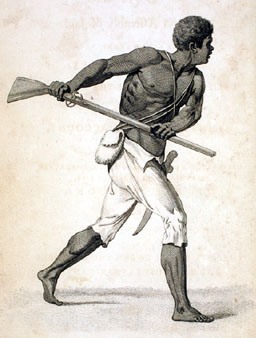
“Kennedy and his colleagues were flabbergasted when Allied commanders demanded the assembled newsies wait at least 36 hours before releasing the bombshell to the world.”
JOURNALISTS ARE NORMALLY congratulated for breaking major news first. But for one Associated Press war correspondent, reporting the proverbial ‘story of the century’ — Germany’s surrender in World War Two — cost him his job.
Edward Kennedy, 40, was one of 16 newspapermen on hand at Supreme Allied Headquarters in Reims, France to witness Generaloberst Alfred Jodl sign the German Instrument of Surrender at 2:41 a.m. local time on May 7, 1945.

After observing the momentous event, Kennedy and his colleagues were flabbergasted when Allied commanders pressed the assembled reporters to wait at least 36 hours before releasing the bombshell to the world.
Amazingly, the call to delay publishing had come from the very top. Both President Harry Truman and Prime Minister Winston Churchill had secretly agreed to demands by Soviet leader Josef Stalin to stage a second surrender ceremony the following day in Berlin. This duplicate event was to be presided over by Red Army field marshal Georgy Zhukov. Out of respect for Moscow, Nazi Germany’s initial capitulation was to be kept under wraps.

Kennedy and his press corps colleagues grudgingly agreed to the demands. Yet within hours, details of the pre-dawn ceremony had leaked and were already being reported by a local German radio station. Within minutes of the discovery, the AP reporter had fired off his copy to the wire service’s London bureau. By 10 a.m., newspapers and radio stations the world over were carrying Kennedy’s story.

“The absurdity of attempting to bottle up news of such magnitude was too apparent,” he would later write about his decision.
Furious, military censors took AP to task for letting the news out and Kennedy was stripped of his military press credentials. Editors with the news service, eager to smooth things over with army brass, ended up firing their star reporter.
Disgraced, the seasoned war correspondent who’d previously covered the Spanish Civil War as well as the fighting in North Africa and Greece, went home. Unable to find work with the country’s major papers, he took a job editing the small town Santa Barbara News in California. Later he’d become publisher of the Monterey Herald.
Kennedy died in a car accident in 1963. He was 58.
It took decades for AP to acknowledge that it had erred in its treatment of its deceased reporter. Finally in 2012, the news service’s top executive Tom Curley issued an apology for the dismissal. The CEO learned of Kennedy’s firing while working on a book entitled Breaking News: How The Associated Press Has Covered War, Peace, and Everything Else.
“It was a terrible day for the AP. It was handled in the worst possible way,” said Curley. “You can’t hold back information like that. The world needed to know.”
Kennedy’s own paper, the Monterey Herald, covered the belated apology. It even reached out to the late journalist’s daughter for comment about how her father would have felt about AP’s reversal.
“I think it would have meant a lot to him,” Julia Kennedy Cochran told the Herald in 2012.










Two remarks. Nazi Germany’s surrender was impossible. The allies did not recognize the German president and his government. In Berlin Keitel signed the Ratification of the surrender at Reims.
Alfred Jodl signed the surrender of all the German Armed Forces.